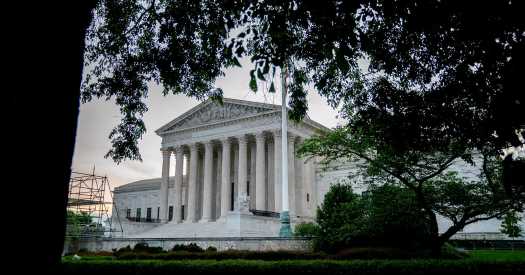WASHINGTON — The Supreme Court ruled on Monday that its decision last year banning non-unanimous jury verdicts in cases involving serious crimes did not apply retroactively, dashing the hopes of thousands of inmates for new trials.
The 6-to-3 decision split along ideological lines, with the court’s six Republican appointees in the majority and its three Democratic ones in dissent.
Last year’s decision, Ramos v. Louisiana, struck down a provision of the Louisiana Constitution that allowed convictions if 10 of 12 jurors agreed. Justice Neil M. Gorsuch, writing for the majority, said the provision was a relic of white supremacy — an attempt to make sure that one or two Black jurors could not prevent the convictions of Black defendants.
When the new case was argued in December, Justice Clarence Thomas noted the provision’s “sordid roots” and Justice Brett M. Kavanaugh referred to its “racist origins.”
The Ramos decision applied only to defendants whose convictions were not yet final. The question for the justices in the new case, Edwards v. Vannoy, No. 19-5807, was whether the decision should also apply to inmates who had exhausted their appeals in the two states that had allowed non-unanimous verdicts, Louisiana and Oregon.
“Under this court’s retroactivity precedents,” Justice Kavanaugh wrote for the majority on Monday, “the answer is no.”
The new case, from Louisiana, was brought by Thedrick Edwards, a Black man who was charged with armed robbery, rape and kidnapping. During jury selection, prosecutors used 10 of their 11 strikes to exclude Black potential jurors, and in the end the jury included one Black member.
The verdict was 10 to 2 on some counts and 11 to 1 on others, with the Black juror voting to acquit on all of the charges. Mr. Edwards was sentenced to life in prison.
A 1989 decision, Teague v. Lane, said new rulings on rules of criminal procedure ordinarily do not apply retroactively. But it made an exception for new “watershed rules” that address the fundamental fairness and accuracy of trials.
The exception had never been used, and on Monday the court did away with it.
“It is time — probably long past time — to make explicit what has become increasingly apparent to bench and bar over the last 32 years: New procedural rules do not apply retroactively on federal collateral review,” Justice Kavanaugh wrote. “The watershed exception is moribund.”
Justice Kavanaugh added: “Continuing to articulate a theoretical exception that never actually applies in practice offers false hope to defendants, distorts the law, misleads judges and wastes the resources of defense counsel, prosecutors and courts.”
Chief Justice John G. Roberts Jr. and Justices Thomas, Gorsuch, Samuel A. Alito Jr. and Amy Coney Barrett joined the majority opinion.
In dissent, Justice Elena Kagan said last year’s decision in Ramos had insisted on a fundamental change in the law to ensure fair procedures and to address racial injustice. “If you were scanning a thesaurus for a single word to describe the decision,” she wrote, “you would stop when you came to ‘watershed.’”
Justice Kagan had dissented in Ramos, saying a 1972 precedent had required her to vote that way. On Monday, on similar grounds, she criticized the majority for its treatment of the Teague decision.
“Seldom has this court so casually, so offhandedly, tossed aside precedent,” she wrote. “In its page of analysis, the majority offers just one ground for its decision — that since Teague, the court has not identified a new rule as watershed, and so ‘the purported exception has become an empty promise.’”
“But even viewed in the abstract, that argument does not fly,” Justice Kagan wrote. “That the court has not found a watershed rule since Teague does not mean it could or would not in the future.”
She added that the Ramos decision easily qualified as a watershed ruling in its vindication of “the need to ensure, in keeping with the nation’s oldest traditions, fair and dependable adjudications of a defendant’s guilt.”
Justices Stephen G. Breyer and Sonia Sotomayor joined Justice Kagan’s dissent.
Justice Kavanaugh wrote that Justice Kagan was in no position to criticize the majority “for supposedly shortchanging criminal defendants” in light of her dissent in Ramos.
“Criminal defendants as a group,” he wrote, “are better off under Ramos and today’s decision, taken together, than they would have been if Justice Kagan’s dissenting view had prevailed in Ramos.”
Justice Kagan seemed to find the critique offensive.
“It treats judging as score keeping — and more, as score keeping about how much our decisions, or the aggregate of them, benefit a particular kind of party,” she wrote. “I see the matter differently. Judges should take cases one at a time, and do their best in each to apply the relevant legal rules.”
Source: Read Full Article
